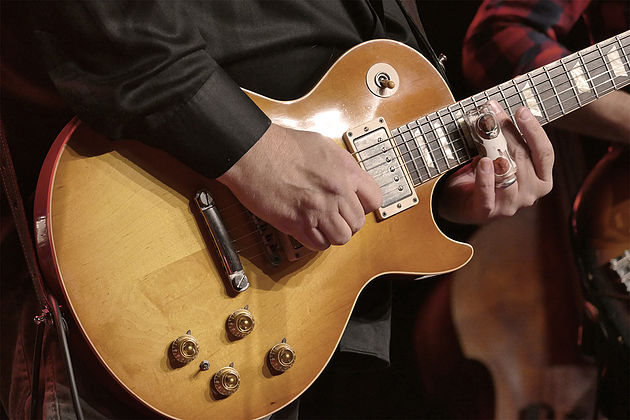Ever wondered, why it is that when you listen to your favourite up tempo music, your mood begins to immediately improve?
Have you ever noticed how the activity of listening to your favourite sad songs can make you feel better about yourself?
Listening to our favourite Music is not just a pleasant experience for our ears.
There is a lot more going on in our brain when we hear music we enjoy.
When a musician plays a musical instrument and starts writing a new song or plays a melody from an existing song.
There is literally a fireworks display of synapses and neurons racing around in the brain. The act of listening to music lights up your brain like fireworks on the fourth of July, spurring on complicated processes and making connections like crazy! Your synapses fire like a twenty one gun salute on fast repeat, your brain’s neurons are in overdrive.
This is how your brain reacts to music.
Scientists and researchers are learning more about how the brain works each year.
Clinical scientists have employed a number of brain mapping technologies, to measure synapse and neuron activity levels to gain a better understanding of how the human brain reacts when its exposed to music!
The most cutting edge of these activity measuring tools are referred to as neuro-imaging technologies.
What are neuro-imaging technologies?
The most simple answer is that they allow scientists ad doctors to scan our brain and measure the brains mental activity levels based on the kinds of activities the brain is performing at any one time. IE walking, resting , drawing, singing, or playing a musical instrument like the guitar etc.
This Brain scanning technology first developed in the 1970’s with the introduction of neuroimaging technologies that provide neuropsychologist’s and neuroscientist’s images of living, functioning brains.
Improvments in Neuro Imaging technologies continue to advance at a rapid rate each year, providing Doctors and neuropsychologists with greater levels of understanding about how our brain has its own preferred learning style to enable the fast track development of new learning and skill pathways in our brain.
These neuro-imaging brain scans have proven that playing music requires a significant amount of right and left brain information sharing.
Scientists and doctors have employed other helpful research and study tools to measure the brains increased stimulation and neural activity when the brain is exposed to music ie especially when a musician plays a musical instrument etc.
The EEG measures brain activity by recording electrical signals taking place in the brain – giving precise measurements in milliseconds. While fMRI measures neuronal activity indirectly by measuring changes in the blood’s oxygen, the EEG provides direct measurements of neuronal activity by placing electrodes on the patient’s scalp.
In short musicians are stimulating a huge amount of brain activity and new neural networks are been created and formed in the process of learning to play a musical instrument etc.
Many of the daily activities we enjoy are associated with activity in one specific singular part of the brain.
Playing an instrument, in contrast, engages almost every part of the brain simultaneously, according to the noted PHD, qualified educator Anita Collins. The different parts of the human brain process different information. Then the various areas within the brain benefit from co-operative information and resource sharing that take place at speeds that fibre internet service providers can never hope to match!
All your guitar practice adds up, meaning that as you get better at playing progressively more challenging music ideas on the guitar ie chord progressions, and or lead guitar fills or solos, your brain continually improves its processing abilities. Your new improved neural network development abilities can then be applied to other, non-musical activities.
At Rapid Guitar Results I will teach you how to utilise your brains preferred learning style.
You will find it easier to learn new musical knowledge and guitar playing co-ordinations, when you learn to use the brains preferred way of learning, your brain has a highly efficient inbuilt system to create new learning pathways to master new skills.
The key to reducing the time and energy it takes to master a new skill is not just about what you learn or what order you learn the information in (although that is important)!
The key to “Rapid Guitar Result” learning is utilising the brains preferred learning method to ensure faster memorisation and easier knowledge recall.
But wait theres more benefits to utilising your brains preferred way of learning.
Scientists have uncovered the first concrete evidence that playing music can significantly enhance the brain and sharpen hearing for all kinds of sounds, including speech.
“Experience with music appears to help with many other things in life, potentially transferring to activities like reading or picking up nuances in tones of voices or hearing sounds in a noisy classroom better,” researcher Nina Kraus, a noted neuroscientist (PHD) qualified at Northwestern University.
A recent study conducted at Boston Children’s Hospital revealed that playing an instrument can improve Executive Functions in the body. Executive Functions in the brain include behavior regulation, decision making, and problem solving. When playing an instrument, musicians must be in tune with their hearing, touch, and sight, as well as their memory. These qualities improve Executive Functions.
Playing an instrument can also relieve stress and help with anxiety.


Great content! Super high-quality! Keep it up! 🙂